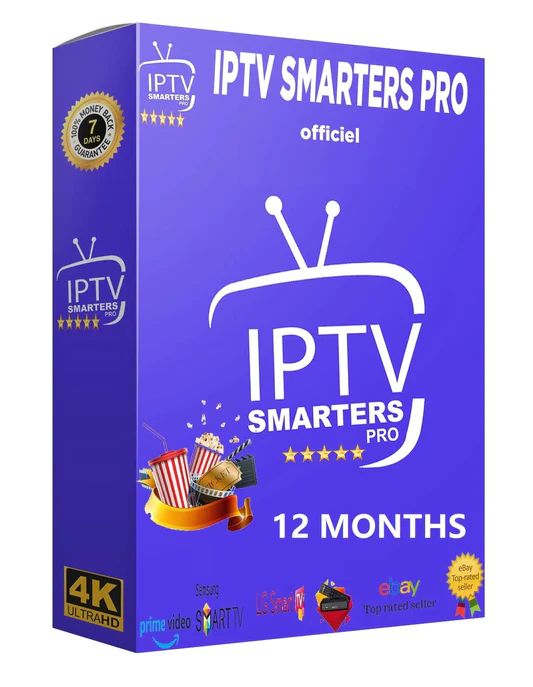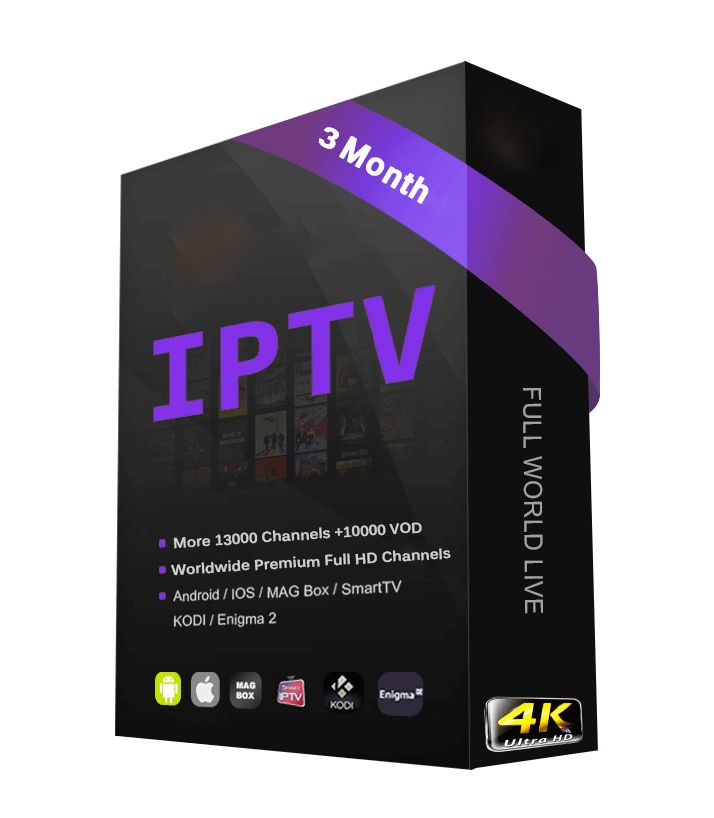iptv encoder , or Internet Protocol Television, is revolutionizing how people consume content by delivering live television, on-demand videos

Why Understanding IPTV Encoders Matters
The demand for IPTV streaming is skyrocketing, with services like Netflix, Hulu, and Amazon Prime Video dominating the entertainment industry. As businesses and content creators embrace IPTV, understanding the role and functionality of IPTV encoders is crucial for ensuring the best performance.
Here’s why IPTV encoders are essential:
- Ensures Compatibility: Encoders convert various input formats into standardized outputs, making content compatible with multiple devices.
- Optimizes Bandwidth Usage: With advanced compression, IPTV encoders reduce file sizes, allowing efficient streaming even on limited internet connections.
- Enhances Viewer Experience: Proper encoding minimizes buffering and ensures sharp visuals and synchronized audio.
- Supports Scalability: Whether streaming to 10 or 10,000 viewers, IPTV encoders enable efficient scaling of content delivery.
Case Study: A small e-learning platform leveraged IPTV encoders to stream HD-quality lectures globally, cutting their bandwidth costs by 30% while improving user satisfaction.
What is an IPTV Encoder and How Does It Work?
Definition of an IPTV Encoder
At its core, an IPTV encoder is a tool designed to convert raw audio and video signals into a digital format suitable for streaming over the internet. This process is called encoding. The encoder compresses data, reducing its size while preserving quality, enabling smooth and uninterrupted delivery of content to end-users.
Unlike traditional broadcasting methods, which rely on analog signals, IPTV encoders are built to handle digital data streams, making them essential in modern streaming setups. They act as the bridge between content sources (like cameras, satellite feeds, or recorded files) and IPTV platforms or Content Delivery Networks (CDNs).
How Does an IPTV Encoder Work?
The encoding process involves three main steps:
- Input: The encoder receives raw video and audio signals from a source, such as a live camera feed, satellite TV, or a video file.
- Compression: Using specialized algorithms, such as H.264, H.265 (HEVC), or MPEG-4, the encoder compresses the data. This reduces the file size while maintaining quality, ensuring compatibility with various devices and streaming platforms.
- Output: The compressed data is transmitted as a digital stream in formats like RTMP, HLS, or MPEG-DASH, ready for distribution to viewers.
The Encoding Process at a Glance
| Step | Description | Example |
|---|---|---|
| Input | Receives raw signals from sources. | HD camera capturing a live event. |
| Compression | Encodes and compresses data into manageable formats. | Using H.265 to reduce file size. |
| Output | Transmits the encoded stream in a format compatible with viewing platforms. | HLS stream sent to a CDN. |
Quote: “Without IPTV encoders, high-definition streaming to global audiences would remain a challenge due to bandwidth and compatibility issues.” — Tech Streaming Insights, 2024
Key Components of an IPTV Encoder
An IPTV encoder typically consists of the following components:
- Input Interfaces: These accept signals from cameras, HDMI sources, or other devices. Examples include HDMI, SDI, and USB ports.
- Encoding Chipset or Software: The heart of the encoder, responsible for compressing and converting data.
- Output Formats: Supports various protocols, such as RTMP (for platforms like YouTube), RTSP (real-time streaming), and HLS (for adaptive streaming).
- Control Panel or Interface: A user-friendly dashboard for configuration and monitoring.
Hardware vs. Software IPTV Encoders
| Feature | Hardware Encoder | Software Encoder |
|---|---|---|
| Performance | High reliability and stability. | Flexible but reliant on system resources. |
| Cost | Higher initial investment. | More affordable upfront. |
| Scalability | Limited to hardware capacity. | Easily scalable via cloud solutions. |
| Use Case | Ideal for live broadcasting. | Suited for on-demand and flexible needs. |
Understanding these elements helps you choose the right IPTV encoder for your needs.
The Different Types of IPTV Encoders
When choosing an IPTV encoder, it’s important to understand the different types available. Each type caters to specific needs, offering distinct advantages and limitations. Below, we’ll explore hardware encoders, software encoders, and the increasingly popular cloud-based encoders.
1. Hardware Encoders
Hardware encoders are physical devices dedicated to encoding tasks. These are often preferred for professional and high-performance environments, especially for live broadcasting.
Advantages of Hardware Encoders
- High Reliability: Designed solely for encoding, these devices provide consistent performance with minimal risk of failure.
- Low Latency: Ideal for live events, as they minimize delays between input and output.
- Durability: Built for heavy, long-term use without overheating or performance degradation.
Disadvantages
- Cost: Higher upfront investment compared to software solutions.
- Limited Flexibility: Hardware is less adaptable to software updates or new formats.

Examples of Popular Hardware Encoders
| Encoder Model | Key Features | Price Range |
|---|---|---|
| Teradek VidiU Pro | Compact, live streaming support, H.264 encoding. | $700 – $1,000 |
| Magewell Ultra Encode | Supports multiple protocols, low-latency. | $1,200 – $1,500 |
| LiveU Solo | Portable, bonded for strong live streams. | $1,500 – $2,000 |
2. Software Encoders
Software encoders operate on general-purpose hardware, such as laptops or servers, making them highly flexible.
Advantages of Software Encoders
- Cost-Effective: No need for dedicated hardware; runs on existing devices.
- Adaptability: Regular updates enable support for new formats and protocols.
- Scalability: Perfect for growing businesses, as resources can be upgraded easily.
Disadvantages
- Performance Dependence: Relies on the system’s resources (CPU, GPU), which may limit output quality.
- Complex Setup: May require advanced configuration and maintenance.
Popular Software Encoders
| Software | Key Features | Price |
|---|---|---|
| OBS Studio | Open-source, supports RTMP, customizable. | Free |
| vMix | Professional-grade, supports multiple streams. | $60 – $1,200 (lifetime) |
| Wirecast | Multi-platform support, high-end features. | $599 – $799 |
3. Cloud-Based Encoders
Cloud-based encoders are hosted on remote servers, eliminating the need for local hardware. These solutions are gaining traction due to their scalability and accessibility.
Advantages of Cloud-Based Encoders
- Scalability: Instantly adjust to viewer demand, perfect for global events.
- Low Maintenance: No need to manage physical hardware or updates.
- Accessibility: Operates from anywhere with an internet connection.
Disadvantages
- Ongoing Costs: Subscription-based pricing may add up over time.
- Dependency on Internet Stability: Requires a strong and reliable internet connection.
Top Cloud-Based Encoder Providers
| Provider | Features | Price Model |
|---|---|---|
| AWS Elemental MediaLive | Highly scalable, supports live and VOD. | Pay-as-you-go |
| Wowza Streaming Cloud | Adaptive bitrate, global reach. | Starting at $25/month |
| Vimeo Livestream Studio | Easy setup, integrates with Vimeo platform. | $75/month (basic plan) |
Comparison Table: Types of IPTV Encoders
| Feature | Hardware Encoders | Software Encoders | Cloud-Based Encoders |
|---|---|---|---|
| Performance | High | Variable | High (dependent on server) |
| Cost | High upfront | Low upfront | Ongoing subscription |
| Scalability | Limited to hardware specs | Requires hardware upgrades | Instant and flexible |
| Use Case | Live broadcasts, stable feeds | On-demand, flexible uses | Large-scale streaming |
Choosing between these types depends on your specific needs, such as budget, scalability, and the nature of your content.
Let me know when you’re ready to move on to How to Choose the Right IPTV Encoder!
How to Choose the Right IPTV Encoder
Selecting the best IPTV encoder for your needs requires careful consideration of your objectives, technical requirements, and budget. This guide outlines the critical factors to help you make an informed decision.
1. Identify Your Needs
The first step is to define the purpose of your IPTV encoder. Different use cases demand specific features and capabilities.
Key Questions to Ask:
- What type of content are you streaming?
- Live streaming (e.g., sports, events) requires low-latency encoders.
- Video on Demand (VOD) works well with software or cloud-based encoders.
- What’s your audience size?
- Large-scale broadcasts need scalable solutions like cloud-based encoders.
- What devices will your audience use?
- Ensure compatibility with smartphones, tablets, smart TVs, and desktops.
Use Case Example:
- A sports broadcaster needs a hardware encoder with ultra-low latency to stream live matches globally.
- A small business creating e-learning content can opt for software encoders for flexibility and cost efficiency.
2. Evaluate Budget Constraints
Your budget will play a significant role in determining the type of encoder you can afford.
Cost Comparison:
| Encoder Type | Cost Range | Typical Applications |
|---|---|---|
| Hardware Encoders | $500 – $5,000+ | Professional live streaming. |
| Software Encoders | Free – $1,200 (one-time) | Flexible, small-scale streaming. |
| Cloud-Based Encoders | $25/month – Custom pricing | Large-scale, scalable broadcasts. |
Pro Tip:
Consider long-term costs. While hardware encoders have higher upfront costs, they might be more economical for consistent, large-scale use compared to ongoing cloud subscriptions.
-

iptv encoder
3. Assess Technical Features
When evaluating an IPTV encoder, focus on technical features that directly impact performance and compatibility.
Must-Have Features:
- Supported Protocols: Look for encoders compatible with popular protocols like HLS, RTMP, and MPEG-DASH to ensure wide accessibility.
- Resolution and Quality: Ensure support for HD, Full HD, and even 4K resolution to meet modern viewer expectations.
- Codec Support: The encoder should handle H.264 and H.265 (HEVC) for efficient compression and high-quality streams.
- Scalability: Cloud-based encoders or software encoders integrated with scalable platforms are ideal for growing audiences.
- Ease of Use: Look for encoders with intuitive interfaces and straightforward setup processes.
Feature Checklist:
| Feature | Hardware Encoder | Software Encoder | Cloud-Based Encoder |
|---|---|---|---|
| 4K Support | ✅ | ✅ | ✅ |
| Adaptive Bitrate | ✅ | ✅ | ✅ |
| Low Latency | ✅ | ❌ | ✅ |
| Multi-Platform Output | ✅ | ✅ | ✅ |
4. Test Compatibility with Existing Systems
An encoder must integrate seamlessly with your current equipment and platforms to avoid additional costs or technical headaches.
Compatibility Considerations:
- Streaming Platforms: Verify compatibility with popular services like YouTube Live, Facebook Live, and Twitch.
- CDNs (Content Delivery Networks): Ensure integration with CDNs for global delivery.
- Input Sources: Match encoder input options (e.g., HDMI, SDI, USB) to your video equipment.
5. Prioritize Future-Proofing
The rapid evolution of streaming technology means you need an encoder that will remain relevant.
Future-Proof Features to Look For:
- Support for emerging resolutions like 8K.
- Compatibility with VR and AR streaming formats.
- Regular firmware or software updates from the provider.
Example: An encoder supporting H.265 (HEVC) ensures better bandwidth efficiency and is ready for future compression advancements.
Conclusion: Making the Right Choice
Choosing the right IPTV encoder is a balance between understanding your current needs and preparing for future demands. Whether you’re a content creator, business, or broadcaster, align your decision with these core factors:
- Define your streaming goals: Live vs. on-demand, small vs. large scale.
- Analyze your budget: Consider both initial and ongoing costs.
- Evaluate technical specifications: Ensure compatibility and quality.
- Think ahead: Opt for solutions that grow with your requirements.
Benefits of Using IPTV Encoders
An IPTV encoder plays a pivotal role in delivering high-quality, reliable streaming experiences for both live and on-demand content. Whether you’re a broadcaster, business owner, or content creator, using an IPTV encoder offers numerous advantages. Let’s explore these benefits in depth.
1. Enhanced Streaming Quality
IPTV encoders ensure that video and audio streams maintain high quality while minimizing buffering and lag. By compressing data using advanced codecs like H.264 and H.265, they deliver smooth and uninterrupted playback, even on networks with limited bandwidth.
Key Features That Boost Quality:
- Adaptive Bitrate Streaming (ABR): Adjusts the video quality based on the viewer’s internet speed, ensuring the best possible experience.
- High-Resolution Support: Many encoders now support up to 4K and even 8K, catering to modern viewers’ expectations.
Example: Streaming a live sports event in Full HD ensures that every detail is captured, from the players’ movements to the audience’s reactions, keeping viewers engaged.
2. Bandwidth Efficiency
Without proper encoding, raw video files are massive and require significant bandwidth for transmission. IPTV encoders reduce file sizes without compromising quality, making it easier to stream content to global audiences.
Impact of Bandwidth Optimization:
- Reduces streaming costs for broadcasters and platforms.
- Makes high-quality streaming accessible even in regions with slow internet speeds.
| Resolution | File Size (Without Encoding) | File Size (With H.265 Encoding) |
|---|---|---|
| 1080p (Full HD) | ~4 GB/hour | ~1.5 GB/hour |
| 4K Ultra HD | ~20 GB/hour | ~8 GB/hour |
3. Device Compatibility
IPTV encoders ensure content is compatible with a wide range of devices, from smartphones and tablets to smart TVs and desktops. They convert streams into formats like HLS and MPEG-DASH, which are widely supported across platforms.
Why Compatibility Matters:
- Viewers expect to access content seamlessly across devices.
- Broader compatibility leads to higher viewer retention and engagement.
4. Scalability for Growing Audiences
Scalability Benefits:
- Handles fluctuations in viewership, such as peak traffic during live events.
- Reduces downtime by distributing content through CDNs.
Case Study: A global eSports tournament used cloud-based IPTV encoders to handle millions of concurrent viewers, delivering lag-free streams worldwide.
5. Cost-Effectiveness
While there’s an upfront cost for hardware encoders or subscription fees for cloud-based solutions, the long-term savings in bandwidth, improved audience satisfaction, and reduced downtime make IPTV encoders a cost-effective choice.
How Encoders Save Money:
- Compress data to minimize server and bandwidth expenses.
- Prevent revenue loss from poor-quality streams that drive viewers away.
6. Real-Time Customization and Analytics
Modern IPTV encoders often come with built-in tools to monitor and adjust streams in real time.
Customization Options:
- Add watermarks or overlays to streams.
- Adjust resolution, bitrate, or frame rate during a live broadcast.
Analytics Capabilities:
- Monitor viewer engagement, traffic patterns, and stream quality metrics.
- Use insights to improve future streams and optimize resources.
7. Reliable Content Protection
IPTV encoders offer robust security features to protect content from piracy and unauthorized access.
Security Features:
- Encryption Protocols: Protect streams with AES-128 or AES-256 encryption.
- Digital Rights Management (DRM): Ensure only authorized viewers can access your content.
Example: A pay-per-view platform uses DRM-enabled IPTV encoders to protect premium live events from being pirated.
8. Environmental Benefits
By optimizing bandwidth and reducing the need for excessive hardware, IPTV encoders contribute to a greener, more sustainable streaming industry.
Frequently Asked Questions (FAQ) About IPTV Encoders
1. What is an IPTV encoder?
An IPTV encoder is a device or software that converts raw video and audio signals into a digital format optimized for streaming over the internet. It compresses the data using codecs like H.264 or H.265 and transmits it in formats compatible with various devices and platforms.
2. Why is an IPTV encoder necessary?
An IPTV encoder ensures high-quality streaming by compressing large video files for efficient transmission. It makes content accessible on a variety of devices, reduces bandwidth usage, and supports adaptive streaming for uninterrupted playback.
3. What are the main types of IPTV encoders?
- Hardware Encoders: Physical devices offering reliability and low latency, ideal for live broadcasts.
- Software Encoders: Programs installed on computers, offering flexibility and cost-effectiveness.
- Cloud-Based Encoders: Remote solutions that are scalable and require no local hardware.
4. How do I choose the right IPTV encoder?
Consider the following:
- Purpose: Live streaming or on-demand content.
- Budget: Hardware encoders are expensive upfront, while software/cloud options have lower initial costs.
- Scalability: Cloud solutions are best for growing audiences.
- Technical Features: Look for codec support (H.264/H.265), resolution, and protocol compatibility (HLS, RTMP).
5. What is the difference between H.264 and H.265 codecs?
- H.264: Widely supported, compresses data efficiently for HD streaming.
- H.265 (HEVC): Offers even better compression, saving bandwidth while maintaining 4K/8K quality, but may require newer devices.
6. What are the advantages of cloud-based IPTV encoders?
- Scalability: Easily handles fluctuations in viewer numbers.
- Accessibility: Operate from anywhere with an internet connection.
- Low Maintenance: No hardware management required, with updates handled by the provider.
7. Can I use a free software encoder for IPTV?
Yes, free software like OBS Studio can be used for IPTV encoding. However, it may lack advanced features like adaptive bitrate streaming, professional-grade support, or high-end optimization found in premium encoders.
8. How do IPTV encoders support multiple devices?
Encoders use streaming protocols like HLS, MPEG-DASH, and RTMP, which ensure compatibility across smartphones, tablets, smart TVs, and desktops.
9. What are the common issues with IPTV encoders, and how do I fix them?
Issue 1: Poor streaming quality.
- Solution: Adjust bitrate, resolution, and ensure sufficient bandwidth.
Issue 2: High latency.
- Solution: Use a hardware encoder or cloud-based option optimized for low latency.
Issue 3: Incompatible output formats.
- Solution: Check your encoder’s settings to ensure compatibility with target devices and platforms.
10. Are IPTV encoders secure?
Yes, modern IPTV encoders include encryption (e.g., AES-256) and DRM (Digital Rights Management) features to protect content from piracy and unauthorized access.
11. How much does an IPTV encoder cost?
- Hardware Encoders: $500 to $5,000+.
- Software Encoders: Free to $1,200 (one-time or subscription-based).
- Cloud-Based Encoders: $25/month to custom enterprise pricing.
12. What’s the future of IPTV encoders?
IPTV encoders are evolving to support emerging technologies like 8K streaming, VR/AR content, and improved compression codecs like AV1, ensuring better efficiency and enhanced viewer experiences.
